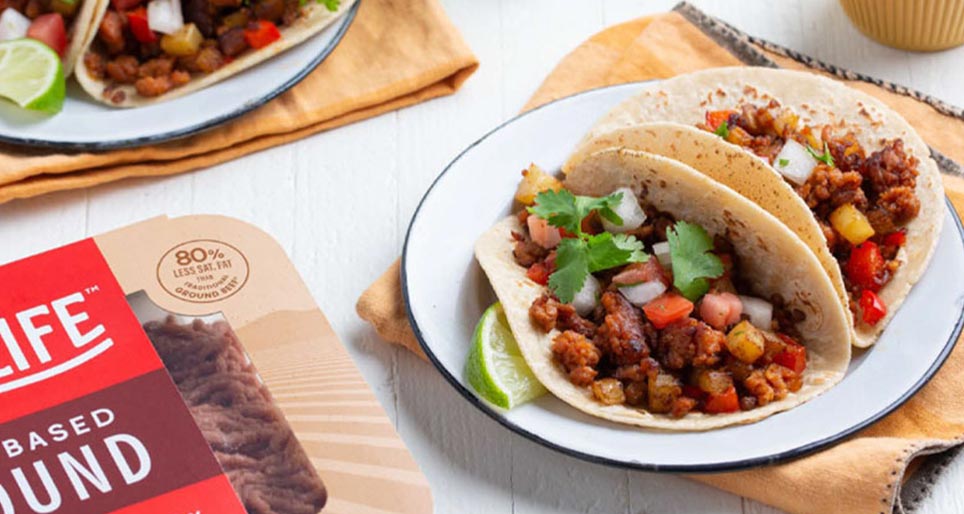How to Become a More Flexitarian Family
Simple tips that’ll get everyone excited to eat more plant-based meals.
By Meghan Rabbitt
If the thought of not eating any animal products (read: a vegan diet) or following a vegetarian diet (which means animal meat is off limits, though dairy products are okay) is totally overwhelming, there’s a new diet trend that may be right up your alley: flexitarian. On this diet, the goal is to eat more plant-based meals that qualify as either vegan or vegetarian. However, as its name suggests, you can be more flexible, adding meat dishes or other animal products to your meals when cravings strike.
Sound exciting—but not sure how to start? Follow this advice to get your whole family on board with this healthier way of eating.
PLAN YOUR MEALS AND SNACK IN ADVANCE.
Taking the time to create a meal plan for the week—and to shop for plenty of healthy foods so they’re readily available—can go a long way toward your goal of eating more plant-based foods, says Lisa Richards, a Vancouver, Canada-based nutritionist and author of The Ultimate Candida Diet Program. “When you do this, you’ll be less likely to make snap decisions for food,” she says, ultimately helping you make healthier veggie-filled choices.
Foods to Eat on a Flexitarian Diet
- Plant proteins: beans, peas, or lentils
- Whole grains: quinoa, brown rice, oats, barley, sorghum, buckwheat, and white and sweet potatoes.
- Vegetables
- Fruits
- Dairy milk and plant milk
- Eggs
- Nuts and nut butters
- Plant-based meat replacements: tempeh, tofu, seitan and pea protein meats
- Healthy fats: avocado and olive oil.
With limited intake of:
- Animal protein: chicken, turkey, red meat, and pork.
- Seafood: considered an animal protein.
- Processed refined grains: white pasta, white bread, and white rice.
- Animal fats: butter, whole milk, cream.
SET SMALL, DOABLE GOALS.
When you’re first starting out, you might try to simply replace one meal a week with a plant-based meal (aka, Meatless Monday), then gradually include more from there. “I’d start by replacing the animal proteins you regularly consume with leaner meats, like poultry or fish,” says Richards. “Then, work your way up to most meals being plant-based.”
RE-THINK YOUR PLATE.
Plan your meals with vegetables as the main event, and think of meat as a condiment, says Caitlin Self, a dietitian-nutritionist and certified nutrition specialist. For example, if you're planning a pot roast, double or triple the vegetables and mix them with smaller amounts of meat when serving.
ADD MORE PLANT-BASED PROTEINS TO YOUR CURRENT GO-TO MEALS.
Continue to make your family’s favorite recipes, but swap out some of the animal protein with hearty plant-based proteins, such as chickpeas or quinoa. Or, swap out meat entirely for plant-based alternatives. For example, use Lightlife® plant-based sausage or Lightlife® plant-based ground “meat” in your tomato sauce or chili. “This will leave your family full and satisfied, which may surprise them when they find out they’ve had a vegetarian meal,” says Richards.
EDUCATE YOUR FAMILY ABOUT THE BENEFITS OF EATING LESS MEAT.
Explaining the health-boosting benefits of eating more plant-based meals can go a long way toward getting everyone in your clan to buy in to a flexitarian diet. “When I began cooking more vegetarian meals for my family, I explained that eating less meat was not only better for our overall health, but also helps prevent heart disease, type 2 diabetes and certain cancers,” says Lynell Ross, a certified health and wellness coach and nutritionist. “Because we have lost many family members to heart disease, this hit home for us.”
Get a little bit sneaky.
It can be hard to get spouses and children to get excited about a more vegetable-heavy diet, and sometimes the best option is to not talk about it at all, says Self. “Start serving more plants and slowly add in more vegetables, so it becomes a habit before your family even notices,” she says.









Share this Post